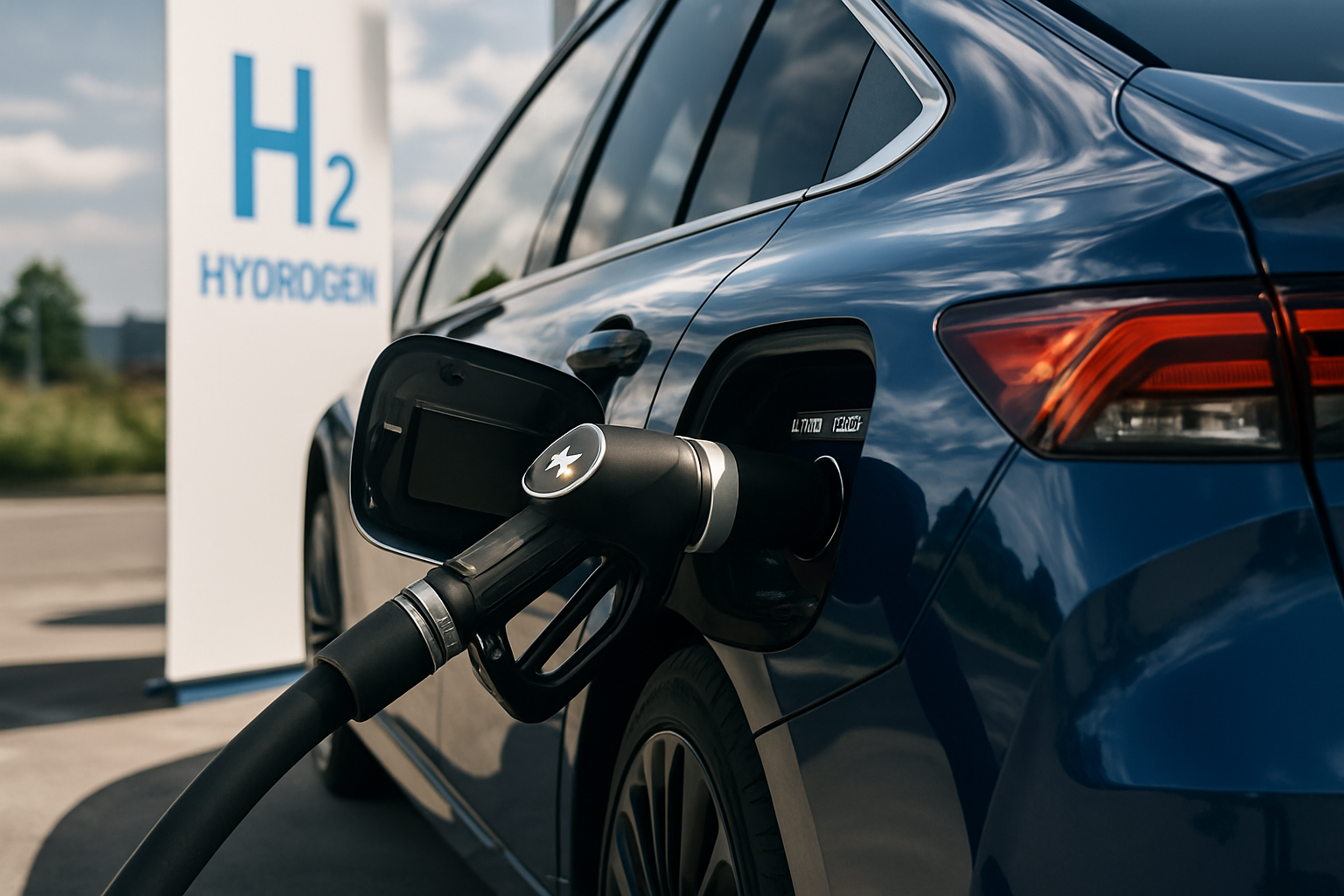Hydrogen Fuel Cells: The Next Frontier in Automotive Propulsion
Imagine cruising down the highway in a car that emits nothing but water vapor, refuels in minutes, and offers a range rivaling traditional gasoline vehicles. This isn't science fiction; it's the promise of hydrogen fuel cell technology. As the automotive industry seeks cleaner alternatives to fossil fuels, hydrogen fuel cells are emerging as a compelling option, offering a unique blend of environmental benefits and practical usability. But what exactly are hydrogen fuel cells, and how could they reshape the future of transportation?

A Brief History of Hydrogen in Automotive Applications
The concept of using hydrogen as a fuel source dates back to the early 19th century, with Swiss inventor François Isaac de Rivaz creating the first hydrogen-powered internal combustion engine in 1806. However, it wasn’t until the mid-20th century that serious consideration was given to hydrogen fuel cells for automotive use. NASA’s space program played a crucial role in advancing fuel cell technology, using it to provide electricity and drinking water for astronauts during missions.
The Advantages of Hydrogen Fuel Cell Vehicles
Hydrogen fuel cell vehicles (FCVs) offer several compelling advantages over traditional internal combustion engines and even battery electric vehicles. First and foremost is their environmental impact – FCVs produce zero tailpipe emissions, with water vapor being the only byproduct. Additionally, FCVs can be refueled in a matter of minutes, similar to gasoline vehicles, addressing one of the main concerns with battery electric vehicles: long charging times.
Current Challenges Facing Widespread Adoption
Despite their promise, hydrogen fuel cell vehicles face significant hurdles to widespread adoption. The most pressing issue is the lack of infrastructure – hydrogen fueling stations are few and far between, making long-distance travel challenging. Additionally, the production of hydrogen itself can be energy-intensive and costly, often relying on fossil fuels. Developing more efficient and sustainable methods of hydrogen production is crucial for the technology’s long-term viability.
The Role of Hydrogen in Heavy-Duty Transportation
While passenger vehicles have been the focus of much hydrogen fuel cell development, the technology shows particular promise in the heavy-duty transportation sector. Long-haul trucks, buses, and even trains could benefit from the quick refueling times and long range offered by hydrogen fuel cells. Several major truck manufacturers are already investing heavily in hydrogen technology, seeing it as a potential solution for decarbonizing the trucking industry.
Innovations in Hydrogen Storage and Safety
One of the key challenges in hydrogen fuel cell technology has been safely storing hydrogen onboard vehicles. Recent innovations in high-pressure tanks and advanced materials have significantly improved storage capacity and safety. Modern FCVs use carbon fiber-reinforced tanks that can withstand extreme pressures and impacts, addressing concerns about the volatility of hydrogen gas.
The Global Race for Hydrogen Dominance
As the potential of hydrogen fuel cells becomes increasingly apparent, countries around the world are vying for leadership in this emerging technology. Japan, in particular, has made significant investments in hydrogen infrastructure and technology development, envisioning a hydrogen-based society. Other nations, including Germany, South Korea, and China, are also making substantial commitments to hydrogen technology, recognizing its potential to revolutionize not just transportation, but entire energy systems.
The Future of Hydrogen in a Multi-Technology Landscape
As we look to the future of automotive propulsion, it’s clear that no single technology will dominate. Instead, we’re likely to see a diverse ecosystem of propulsion methods, each suited to different applications. Hydrogen fuel cells may find their niche in long-distance and heavy-duty applications, complementing battery electric vehicles in urban environments. This multi-technology approach could provide the flexibility and resilience needed to address the complex challenges of decarbonizing transportation.
In conclusion, hydrogen fuel cell technology represents a fascinating frontier in automotive propulsion. While significant challenges remain, the potential benefits – zero emissions, quick refueling, and long range – make it a compelling option for the future of transportation. As research continues and infrastructure develops, we may soon see hydrogen-powered vehicles becoming an increasingly common sight on our roads, contributing to a cleaner, more sustainable automotive landscape.






